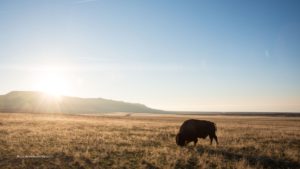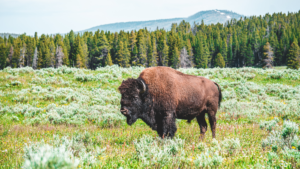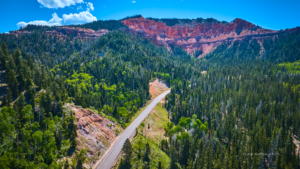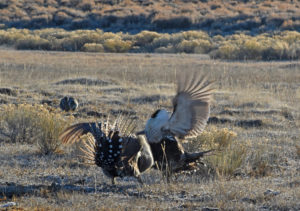September 8, 2017
Online Messenger #359
Western Watersheds Project is not primarily known for its defense of the U.S. Constitution. We tend to focus on federal laws and policies relating to the environment and public lands. But now, thanks to a Tenth Circuit Court win and a successful but protracted battle in Wyoming, you can count us among the defenders of free speech!
It all started when Jonathan Ratner, our dedicated Wyoming Director, started gathering evidence of livestock-caused water pollution on public lands and submitting his data to the Wyoming Department of Environmental Quality (DEQ). His results of significant fecal coliform contamination were so threatening to the political establishment of the “Cowboy State” that rather than clean up the water, Wyoming ranchers started to seek ways to shut us up.
In 2014, anti-environmental attorney (and potential Trump pick to lead the Bureau of Land Management) Karen Budd-Falen and a group of ranchers claimed Jonathan must have trespassed on their private property in order to gather water quality samples from public lands grazing allotments. She wound up the loser. This frivolous lawsuit was resolved in 2016 through a settlement agreement that ultimately penalized the ranchers through their legal fees, and WWP agreeing to follow the same laws it always follows regarding private lands.
Then, in 2015, the Wyoming DEQ decided not to accept any of WWP’s data: “Any submission submitted by such organizations should not be accepted due to their inherent bias towards one of Wyoming’s leading economic industries.” If an organization cares about water quality and native fish habitat more than cows, the data be damned.
Also that year, the DEQ decided to change the rules about E.coli in 76 percent of the waterways in the state – effectively legalizing the extreme pollution levels that Jonathan had been documenting. The rule change, requested by the livestock industry, went into effect in February 2017 despite broad opposition by non-ranchers, recreational users, and federal land management agencies.
In addition to working against WWP and the public’s interest in healthy waterways, the Wyoming State Legislature decided to take special interests’ right to wreck the environment to another level by passing legislation making it illegal to cross “open land for the purpose of collecting resource data.” WWP and our allies were alarmed by the fact that the laws – dubbed “Jonathan’s Laws” by our staff – would seek specifically to punish people who intend to communicate data to the government; this is a restriction on free speech and targets a specific class of citizens (data collectors) in a way that the U.S. Constitution prohibits.
After the Wyoming legislature modified the laws in 2016, Wyoming had our case in District Court dismissed. But WWP and our co-plaintiffs weren’t fooled by the tweaks in language, and we appealed the case to the Tenth Circuit Court of Appeals.
The Tenth Circuit Court of Appeals overturned the lower court’s dismissal and concluded that plain reading of the statute demonstrated that Wyoming was seeking to regulate an activity that occurred on public land and that resource data collection is within the definition of the creation of speech – protected under the First Amendment and essential to public participation in numerous federal environmental statutes. The case now goes back to district court.
Wyoming counties have also taken up the charge to block public access in public lands. In Lincoln County, for years the public used a county road to reach the Raymond Mountain Wilderness Study Area on public lands. In 2013, the county sold a strip of land along the road to an Idaho rancher and subsequently made the private portion of the road impassable. According to emails revealed in litigation, this was done specifically to block WWP’s access to a long-troubled grazing allotment.
WWP is enormously grateful to our attorneys at Public Justice and our co-plaintiffs National Press Photographers Association and Natural Resource Defense Council for standing with us on this appeal. We’re also enormously proud of Jonathan Ratner’s work to expose and address the harmful impacts of public lands livestock grazing in the “Cowboy State.”
While we wait for this next round of litigation, we hope that Wyoming’s next move is simply to clean up its act and stop letting the livestock industry foul the state’s precious waters with impunity.







